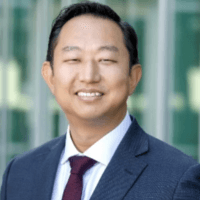- Integrated Planning
Integrated Planning
Integrated planning is a sustainable approach to planning that builds relationships, aligns the organization, and emphasizes preparedness for change.
- Topics
Topics
- Resources
Resources
Featured Formats
Popular Topics
- Events & Programs
Events & Programs
Upcoming Events
- Community
Community
The SCUP community opens a whole world of integrated planning resources, connections, and expertise.
- Integrated Planning
Integrated Planning
Integrated planning is a sustainable approach to planning that builds relationships, aligns the organization, and emphasizes preparedness for change.
- Topics
Topics
- Resources
Resources
Featured Formats
Popular Topics
- Events & Programs
Events & Programs
Upcoming Events
- Community
Community
The SCUP community opens a whole world of integrated planning resources, connections, and expertise.
 Blog Post
Blog Post‘Holistic and Flexible Campus Planning’ in Action
Look Forward and Adapt to Changing CircumstancesPublished August 9, 2024By David Shynn, MBA, Azusa Pacific UniversityPlanning Types: Campus Planning
Institutions referenced in this resource:
Metropolitan Community College, Azusa Pacific University
David Shynn (Azusa Pacific University) offers his takeaways from an insightful session at the SCUP 2024 Annual Conference.
At the SCUP 2024 Annual Conference, a session, “Holistic and Flexible Campus Planning,” shed light on innovative approaches to campus development.
Led by Cathy Brown and Aaron Persen from Metropolitan Community College (MCC), alongside Megan Jarosz from Holland Basham Architects, the session provided a comprehensive overview of navigating the complexities of modern campus planning.
In today’s rapidly evolving higher education landscape, developing a campus facilities plan that
looks 10–20 years ahead can seem daunting. The ways in which students learn are changing,
and employers’ expectations are shifting. Despite well-informed predictions, future needs often
diverge from what was anticipated. This session highlighted how MCC addressed these
challenges through its Facilities Long Range Plan (FLRP), a forward-thinking approach to
campus facilities planning.Needing a New Approach
MCC recognized that its campus planning needed to be smart and workable to remain relevant and effective. It aimed to create a plan responsive to the shifting needs of students and the community. The FLRP was designed with four key priorities in mind:
- Framework for Ongoing Decisions: Establish a robust framework to guide continuous decision-making processes.
- Holistic Approach: Consider multiple scenarios to ensure adaptability to various future outcomes.
- Fiscal Responsibility: Repurpose spaces to ensure fiscal efficiency.
- Support for Partnerships: Develop space programming to foster and sustain community and industry partnerships.
Defining the Facilities Long Range Plan
In its request for proposals (RFP) for an architectural partner, MCC outlined several crucial
institutional factors that needed consideration when developing the FLRP:- Guaranteed Value: Offering credentials with high earning potential.
- Attracting Talent: Growing the local labor force through community engagement.
- Flexibility: Meeting the diverse and changing expectations of students.
- Experiential Learning: Emphasizing hands-on and work-based learning experiences.
- Individuality: Offering tailored programs to support students throughout their careers.
The inclusion of these factors in the RFP intrigued Megan Jarosz of Holland Basham Architects, signaling a distinct and thoughtful approach to campus planning at MCC. The collaboration between the firm and MCC led to forming a core team, including additional college representatives, a developer, and an investment group. The team spent over a year developing a decision-making framework anchored by six planning themes:
- Community Engagement and Connection
- Learning, Program Development, and Delivery
- Campus Identity and Sense of Purpose
- Inclusivity and Accessibility
- Student Support
- Stewardship and Sustainability of Resources
This framework supported the design recommendations across various areas of the FLRP—such as districts, partnerships, density, and online learning—with a strong emphasis on flexibility.
Creative Solutions to Serve the Workforce
One particularly thought-provoking aspect of the FLRP was its connection to the broader
external community around the college. Through innovative public and private partnerships, MCC created impactful solutions to several community challenges.- For instance, rather than developing its own childcare centers, the college partnered
with local, well-established childcare centers, making an MCC education more accessible to and supportive of students juggling work, school, and family responsibilities. - MCC partnered with first responders and situated relevant facilities in key locations, such as near fire stations. These decisions demonstrated MCC’s attention to that segment of its community by providing more convenient access to educational and recertification opportunities for emergency personnel.
Future Implications
The “Holistic and Flexible Campus Planning” session showcased a great example of
adaptive and forward-thinking strategies in modern campus planning. The thoughtful and
intentionally flexible approach adopted by MCC in its FLRP serves as a model for other institutions seeking to navigate the shifting needs within higher education.By prioritizing community engagement, inclusivity, and sustainability, MCC’s FLRP meets current demands and anticipates future needs. The emphasis on creating a decision-making framework that can adapt to changing circumstances ensures that MCC remains resilient and responsive to the needs of its students and the broader community.
Author Biography
David Shynn, MBA, serves as vice president/chief strategy officer at Azusa Pacific University (APU) in Azusa, California, with more than 20 years of experience in increasingly complex roles, leading organizational transformation, strategic planning, and business analytics. Shynn currently oversees the university’s integrated strategic plan, as well as the revision of the campus master plan, to operationalize and accelerate APU’s vision and position the university for growth in the increasingly competitive higher education landscape.
- Topics
- Topics


